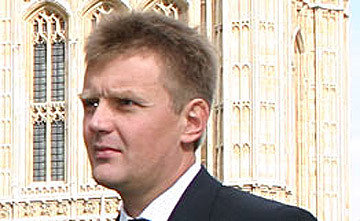LONDON, March 15 - RAPSI. The inquest into the death of former KGB officer Alexander Litvinenko in London in 2006 will be held on October 2, 2013, the coroner Sir Robert Owen said at the Royal Courts of Justice pre-inquest hearing on Thursday.
The date of the inquest has been delayed to allow time for more evidence to be gathered, Sir Robert said.
He expressed hope that Litvinenko's widow Marina, who had already waited six years to learn the truth of her husband's death, would accept his decision, because "the thoroughness of this investigation must not be compromised."
The coroner stated that many of the necessary documents and the lists of the witnesses were still not ready.
The representatives of the Russian Investigative Committee, which is a party of interest in the case, said at the pre-hearing that they would forward several volumes of documents they had collected to the UK in the near future.
Andrei Lugovoi, who is believed to have killed Litvinenko, has pulled out of the inquest, but is free to rejoin it if he changes his mind, said counsel to the inquest Robin Tam QC.
Ex-security service officer Andrei Lugovoi, who is now a State Duma lawmaker, told a news conference in Moscow on Tuesday that he would not take part in the inquest, claiming that he made the decision after the Foreign Office insisted on classifying some of the case records.
Sir Robert Owen, however, stated that all court sessions would be held in public and that Lugovoi's belief otherwise was a "misunderstanding as to the nature of an inquest and the application that has been made on behalf of Her Majesty's Government."
Alexander Litvinenko, a former KGB agent, fled to the UK in 2000. He died in 2006 shortly after meeting with Lugovoi in London's Millennium Hotel. It was announced soon afterwards that Litvinenko was poisoned with polonium-210 which was found in his body.
UK officials claimed that they had sufficient evidence to charge Lugovoi with murdering the former intelligence officer.
Lugovoi claimed the charges against him were politically motivated. He passed a lie detector test administered in Moscow by British experts and no evidence of his guilt was found. At the press conference in Moscow Lugovoi said that he could not hope to receive justice in Britain, adding that the trial would be a farce.



